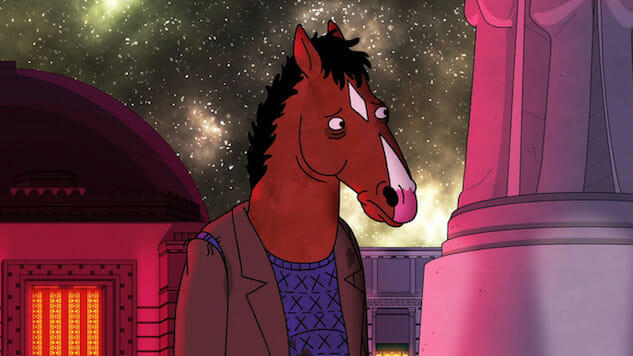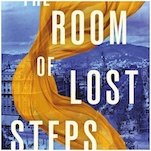BoJack Horseman‘s Beginning of the End Suffers, Thanks to the Netflix Split
The first part of the final season feels hauntingly incomplete.
Photo Courtesy of Netflix
What is the worst thing you’ve ever done? How hard do you have to work to avoid thinking about it every day? And do you actually deserve to escape it?
Netflix’s BoJack Horseman has, nearly since the beginning of the series, ascended beyond the surface level aspects of its premise: An animated satire about a washed-up sitcom star (who happens to be an anthropomorphic horse). And that transcendence has always been courtesy of the show’s obsession with examining questions like the ones above.
Unfortunately, the new episodes of Raphael Bob-Waksberg’s emotionally affecting dramedy don’t manage to hit the high points of the past — but that’s not the show’s fault. BoJack’s final season will be 16 episodes long, yet only the first eight were released this previous weekend, with the final set to come January 31, 2020. It’s a similar move to what Netflix has done in years past for shows like Unbreakable Kimmy Schmidt and Arrested Development.
The choice to do so here is a major handicap to what makes BoJack truly great. Every BoJack season to date has managed to feel like a complete journey for the characters, one which demands some dark emotional turns before an end which represents some hope for the future, and thus the decision to split up the sixth and final season makes these episodes a deeply unsatisfying experience.
One way of framing this review would be a whine about the “please sir, I want some more” of it all, instead of being grateful that at least there is still a little bit more of this stellar show to be enjoyed. But while other shows might be built to be split up in this way, BoJack has always been a noble example of how distinctly episodic storytelling can ultimately add up to so much more. The first eight episodes of Season Six just aren’t satisfying to viewers who have been previously willing to make big emotional leaps alongside this show’s choices, knowing that some sort of catharsis is coming for them. The end of Episode Eight redefines what a cliffhanger means in such a haunting way, leaving us on the precipice of many characters’ well-being.
![]()
In many ways, Season Six begins like many others — with BoJack determined to make his life better, despite whatever setbacks/emotional trauma he’d endured over the course of the previous season. This time, this is even more explicit, because at the end of Season Five, BoJack made the decision (with some help from Diane) to go to rehab. His time there stretches across multiple episodes, even after a somewhat easy-to-predict inspirational montage where BoJack’s difficulties with sharing, crafts, therapy and yoga are overcome.
Perhaps because recovery is about facing truths with no blinders (horse reference), no metaphors and no games are involved in BoJack’s emotional journey. Eventually, he does leave rehab, and while he maintains his sobriety and seems close to turning his life around, maybe even finding peace, the final episode of this block makes it clear that a dark turn is coming for him, literally ending on a question that may unravel everything.
It’s the characters who have chosen to largely separate themselves from BoJack who honestly seem to be doing the best in these episodes; Princess Carolyn might still be his agent, but she’s far more concerned with both her new adopted baby and the ongoing career of Mr. Peanutbutter, her new “favorite client,” especially now that his idea for a movie about a Birthday Dad has evolved into a new TV show. Todd’s on the verge of good things, but his potential reconnection with his parents and a new asexual love interest are just beginning to emerge. Diane’s storyline does draw in the show’s constant cynical engagement with The State of Things Today, as the online media company she works for pivots to video and she finds herself facing an even larger mega-corporation.
While the above characters have always been instrumental to the density of the world depicted by previous BoJack seasons, right now their individual searches for balance among all of the different pressures they and/or the rest of the world place upon them are hauntingly incomplete … until, hopefully, this January.
And that’s the most unsatisfying part of writing this review, because it is literally half a story, and while it’s hardly uncommon for critics to have a limited number of episodes with which to judge a season, BoJack is at its best when it’s able to paint a complete picture.
-

-

-

-

-

-

-

-

-

-

-

-

-

-

-

-

-

-

-

-

-

-

-

-

-

-

-

-

-

-

-

-

-

-

-

-

-

-

-

-








































